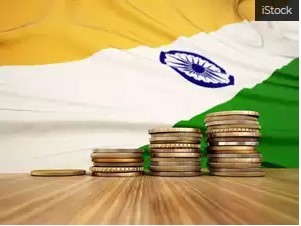7 trillion economy goal should be crossed : India has got four challenges on the way

The Finance Ministry has highlighted four challenges facing the Indian economy: AI’s threat to the services sector, the trade-off between energy security and economic growth, the impact of global developments, and the availability of a skilled workforce. The Interim Budget announcement is separate from the Economic Survey, which will be released before the full budget after the general elections.
Ahead of the Interim Budget announcement, the Finance Ministry has laid out four challenges confronting the Indian economy, including artificial intelligence’s threat to services sector, the trade-off between energy security & economic growth and the availability of a skilled workforce.
This report titled “The Indian Economy: A Review” is different from the Economic Survey which is released a day prior to the announcement of the Budget. Given that this is a vote-on-account budget, the full Economic Survey will be released before the full budget after the general elections due to take place in April-May 2024.
The ministry said that the nation can aspire to be a $7 trillion economy in the next six to seven years, i.e., by 2030. However, it also laid out the challenges faced by the Indian economy.
Mentioning the challenges confronting the Indian economy, the Finance Ministry noted that in an era of an increasingly integrated global economy, India’s growth outlook also depends on the spillover effects of global developments and not just its domestic performance.
“Increased geo-economic fragmentation and the slowdown of hyper-globalization are likely to result in further friend shoring and on shoring, which are already having repercussions on global trade and, subsequently, on global growth,”.
The government said that the advent of artificial intelligence poses a big challenge to governments around the world because of the potential impact on services sector employment. This is of particular interest to India given that the services sector contributes over 50 per cent to India’s GDP.
Given the issue of climate change being aggressively addressed by policymakers worldwide, developing countries have come under scanner for their carbon targets and appetite to grow their economies. Under the net zero target, India has agreed to completely switch to renewables by 2070. “The trade-off between energy security and economic growth versus energy transition is a multifaceted issue having various dimensions: geopolitical, technological, fiscal, economic and social, and the policy action.Finally, the government also sees the availability of a talented and “appropriately” skilled workforce in the industry as a challenge to economic growth.
“Domestically, ensuring the availability of a talented and appropriately skilled workforce to the industry, age-appropriate learning outcomes in schools at all levels and a healthy and fit population are important policy priorities in the coming years. A healthy, educated and skilled population augments the economically productive workforce,” it said.
The ministry noted that the Indian economy will likely grow by or above 7 per cent in FY24. Some analysts have predicted that a similar growth rate could be achieved in FY25 as well. “If the prognosis for FY25 turns out to be right, that will mark the fourth year post-pandemic that the Indian economy will have grown at or over 7 per cent,” the report read.
Sources : Economic times 29 Jan 2024
